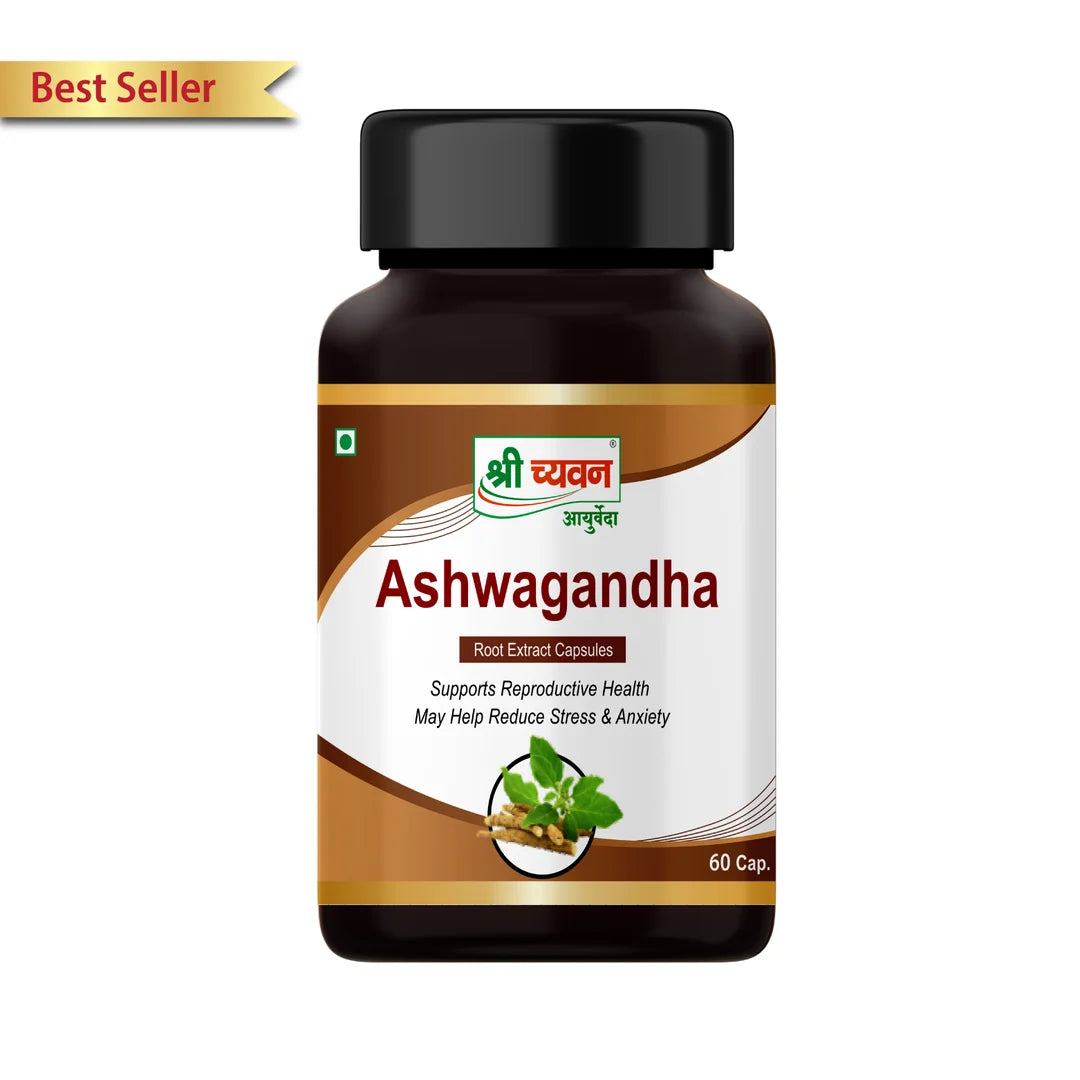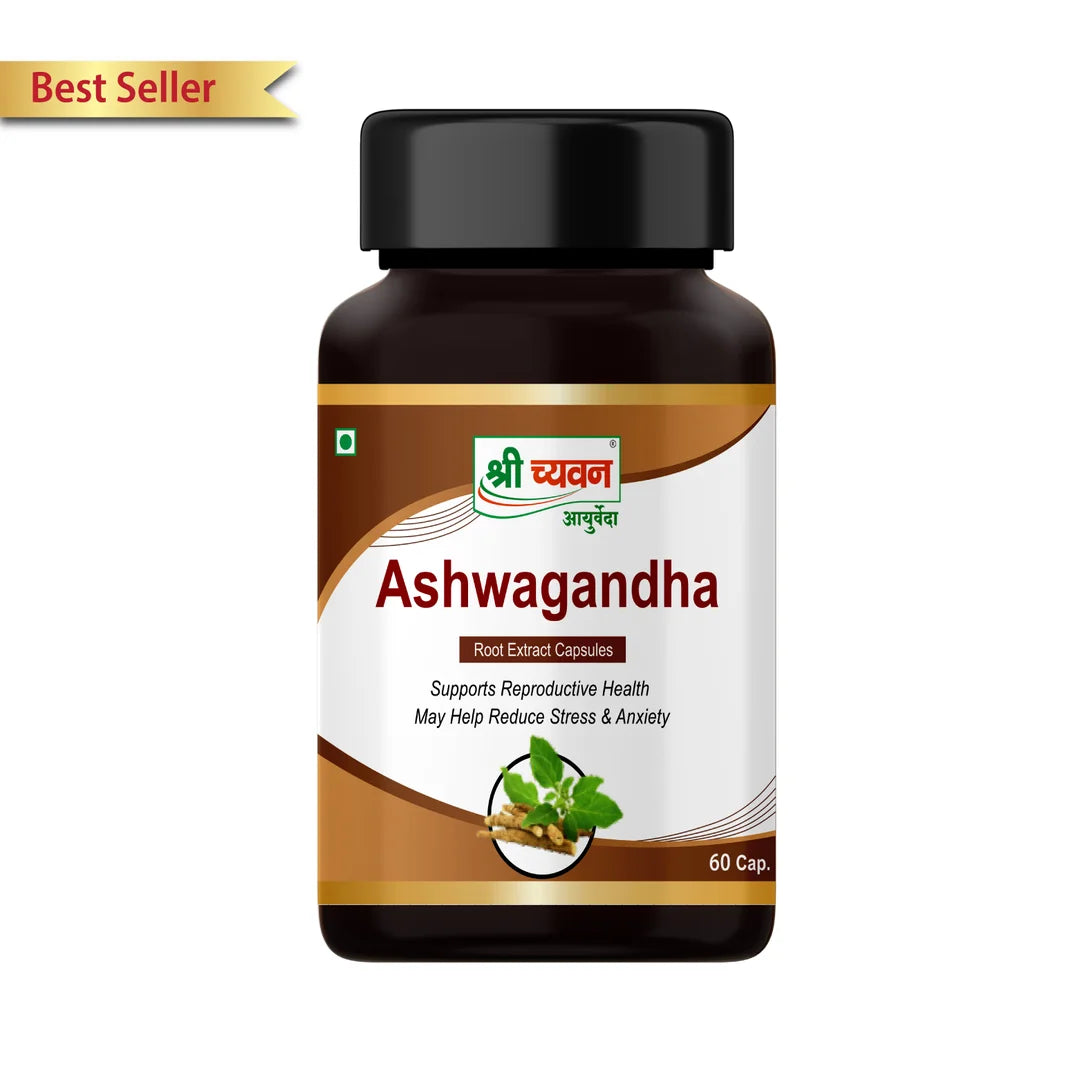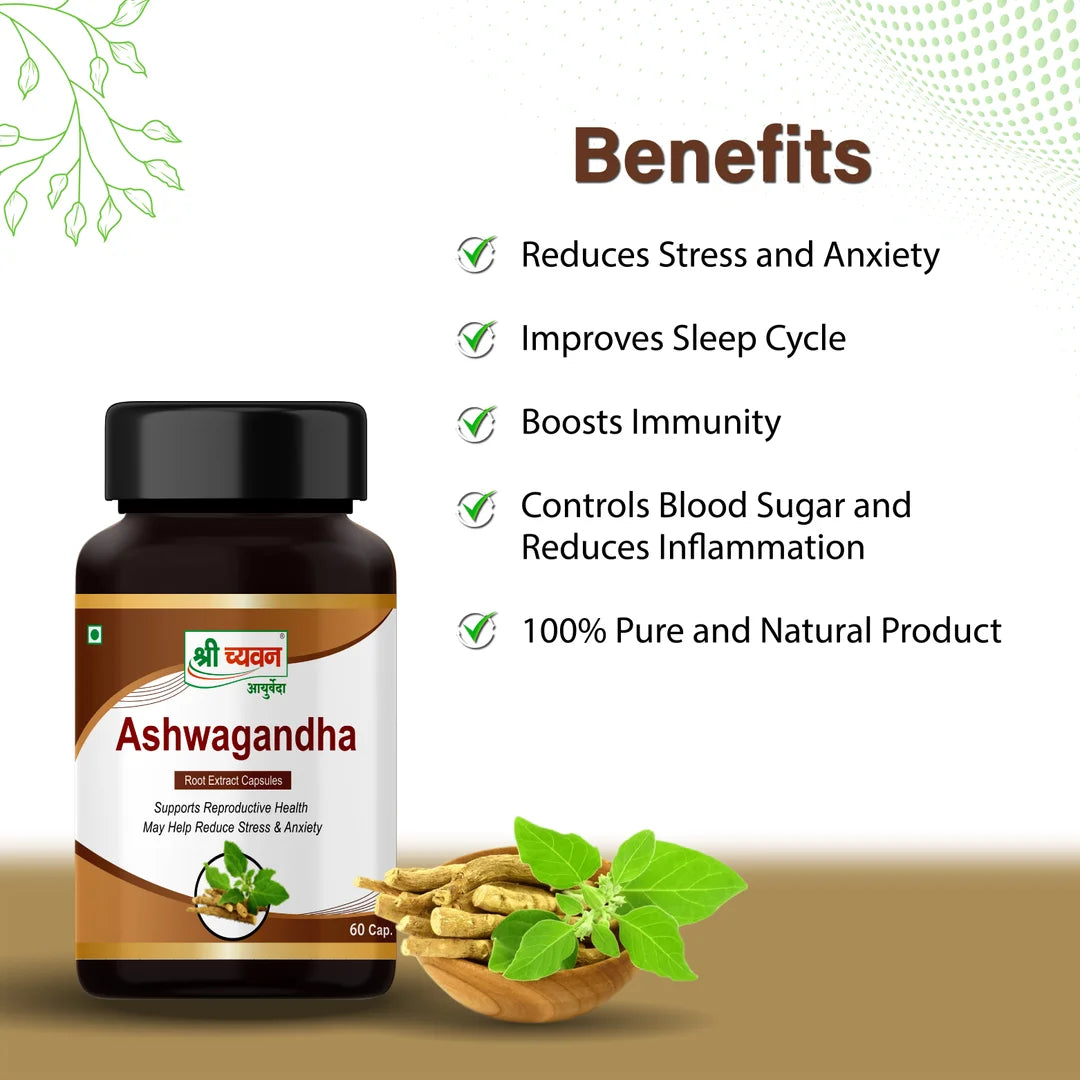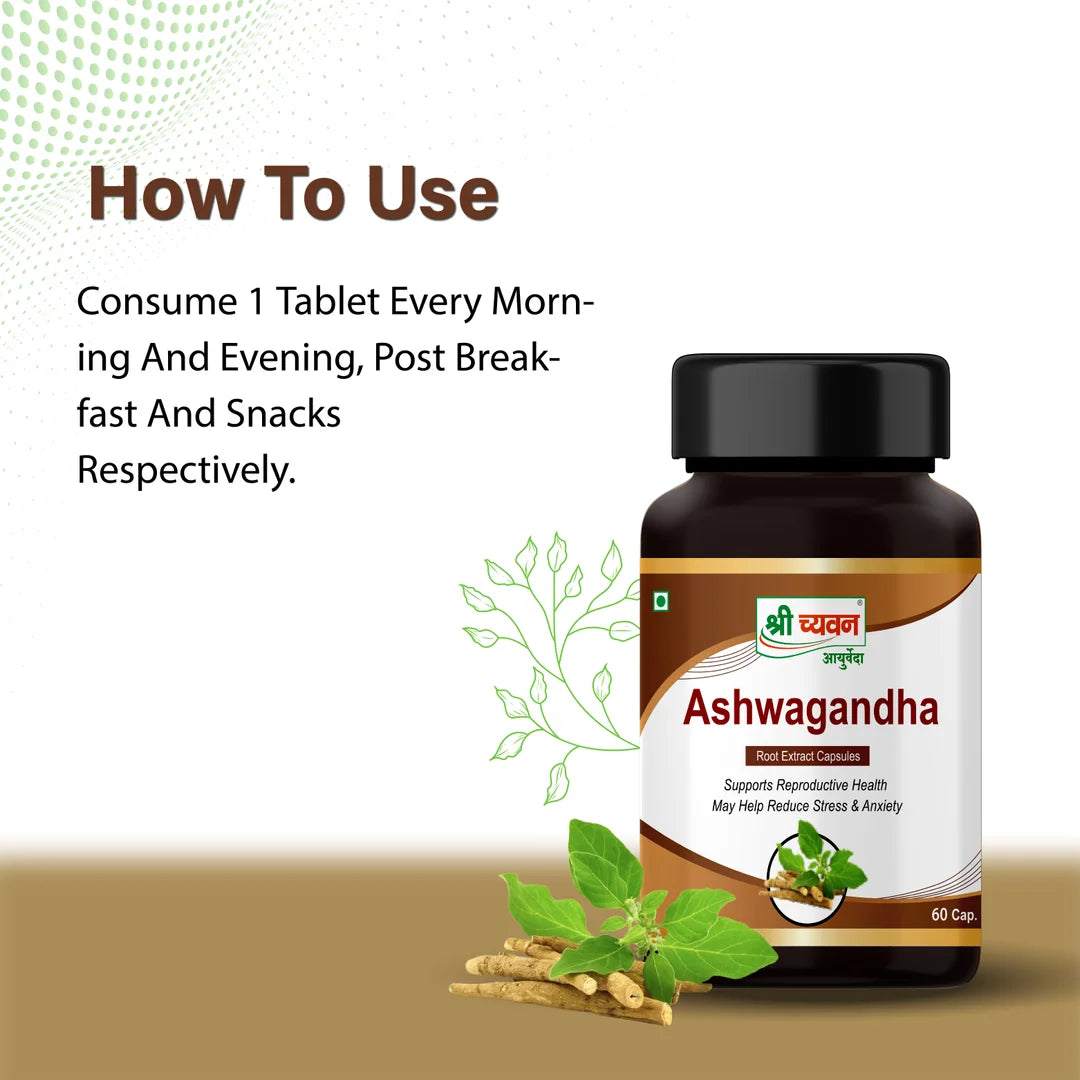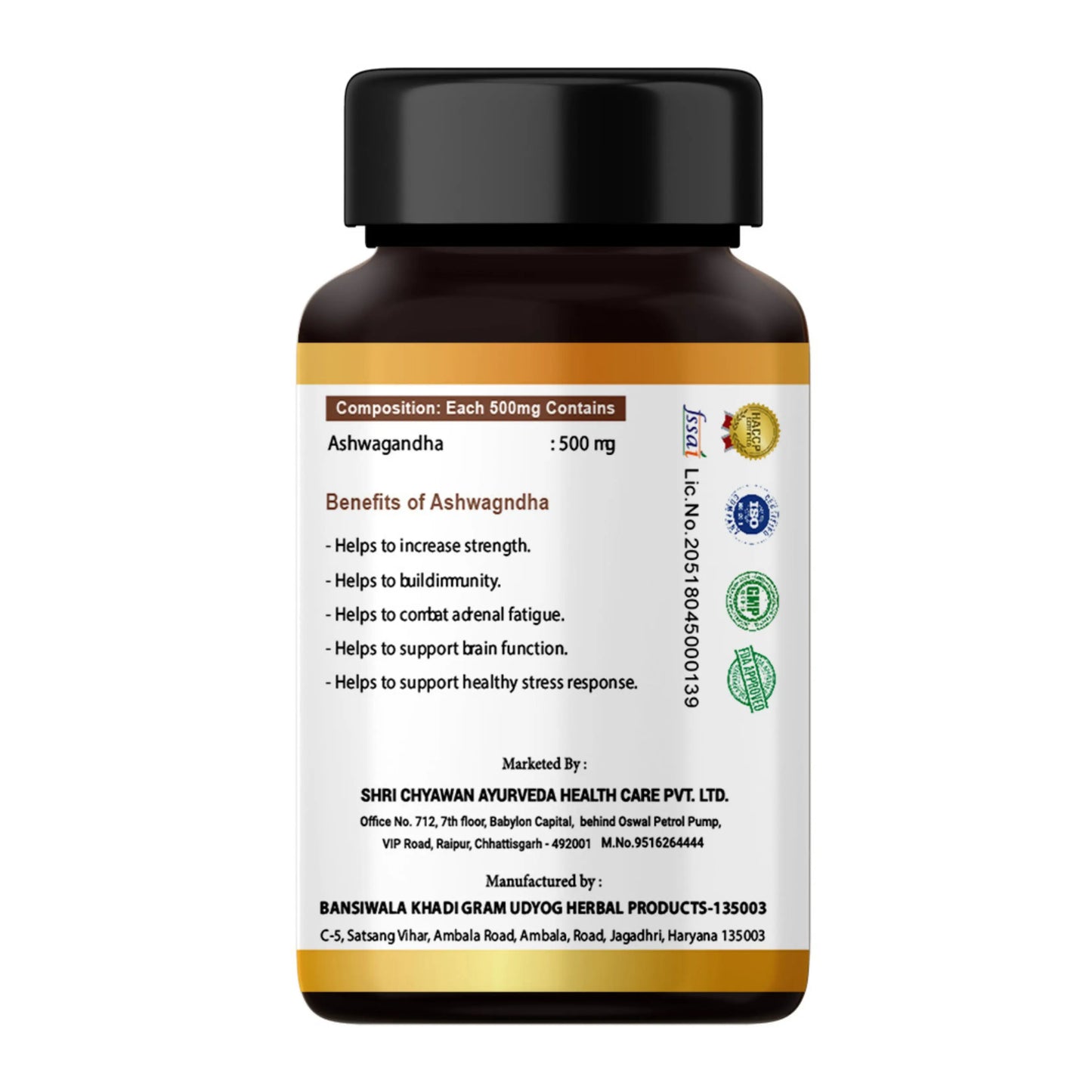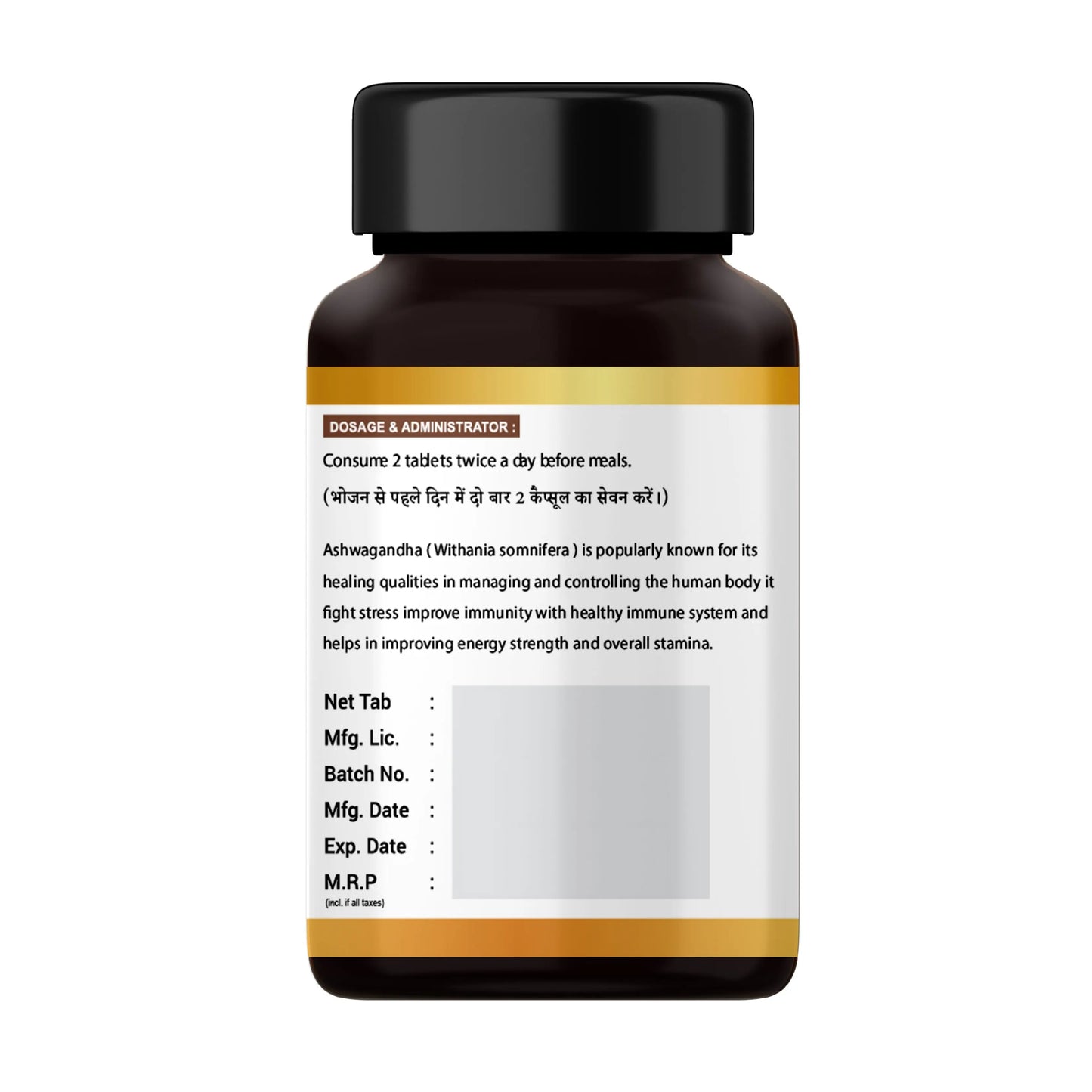Introduction
Ashwagandha, also known as Withania somnifera, is an ancient herb revered in Ayurvedic medicine for its numerous health benefits. Often referred to as "Indian ginseng," this adaptogenic herb helps the body cope with stress and promotes overall wellness.
What is Ashwagandha?
Ashwagandha is a small shrub native to India, the Middle East, and parts of Africa. Its roots and berries are used for medicinal purposes. Known for its adaptogenic properties, it helps regulate the body’s response to stress and enhances vitality.
Historical Uses
Historically, Ashwagandha has been used for thousands of years in Ayurvedic practices to promote longevity, improve energy levels, and enhance mental clarity. It has also been employed to treat various ailments, including anxiety, insomnia, and hormonal imbalances, making it a cornerstone of traditional medicine.
Health Benefits of Ashwagandha for Women
Stress Reduction
Ashwagandha is renowned for its ability to lower cortisol levels, the hormone responsible for stress. By promoting relaxation and reducing anxiety, it helps women manage daily stressors more effectively, leading to an overall sense of calm.
Mood Enhancement
This powerful herb is known to enhance mood by supporting neurotransmitter function. It can help alleviate symptoms of depression and improve emotional resilience, contributing to better mental health and well-being.
Hormonal Balance
Ashwagandha plays a significant role in regulating hormonal levels in women. It can help alleviate symptoms related to menstrual cycles, support fertility, and ease menopausal discomfort by balancing estrogen and progesterone levels.
Improved Sleep Quality
With its calming properties, Ashwagandha can promote deeper, more restful sleep. It helps reduce insomnia and improve sleep quality, making it an excellent choice for women who struggle with sleep disturbances.
Boosting Immunity
Rich in antioxidants, Ashwagandha supports the immune system by combating oxidative stress and enhancing the body’s defense mechanisms. This can lead to fewer illnesses and improved overall health, particularly important for women juggling multiple responsibilities.
Ashwagandha and Women's Health
Support During Menstrual Cycle
Ashwagandha can help alleviate menstrual discomfort by reducing cramping and mood swings. Its adaptogenic properties support hormonal balance, helping to ease symptoms such as irritability and fatigue during the menstrual cycle.
Benefits During Pregnancy
During pregnancy, Ashwagandha may provide various benefits, such as reducing stress and anxiety, which can be particularly high during this time. It also supports energy levels and helps in overall well-being. However, it's essential for pregnant women to consult with a healthcare professional before incorporating it into their routine.
Menopause Support
As women approach menopause, Ashwagandha can help manage symptoms like hot flashes, mood swings, and sleep disturbances. By promoting hormonal balance and reducing stress, it supports a smoother transition through this life stage, improving quality of life.
How to Incorporate Ashwagandha into Your Diet
Supplements vs. Powder
Ashwagandha is available in various forms, including capsules, tablets, and powder. Supplements are convenient for those who prefer a quick and easy option, while powder can be incorporated into various recipes and drinks. When choosing a form, consider your lifestyle and how you plan to use it. Always opt for high-quality products from reputable brands.
Recipes and Usage Tips
1 Ashwagandha Smoothie: Blend 1 teaspoon of Ashwagandha powder with banana, spinach, almond milk, and a tablespoon of nut butter for a nutritious smoothie.
2. Golden Milk: Mix 1 teaspoon of Ashwagandha powder with warm almond or coconut milk, turmeric, honey, and a pinch of black pepper for a soothing drink.
3. Ashwagandha Chai: Add ½ teaspoon of Ashwagandha powder to your favorite chai recipe for an herbal twist.
4. Energy Balls: Combine dates, nuts, and 1 teaspoon of Ashwagandha powder in a food processor, roll into balls, and refrigerate for a healthy snack.
5. Morning Oatmeal: Stir in 1 teaspoon of Ashwagandha powder into your oatmeal along with fruits and nuts for added nutrition.
Usage Tips
- Start with a small dosage (e.g., ½ teaspoon of powder) and gradually increase as needed.
- Mix Ashwagandha powder into foods and beverages to mask the taste if desired.
- Consult with a healthcare provider for personalized dosage recommendations, especially if you are pregnant, nursing, or taking medications.
Potential Side Effects and Precautions
While Ashwagandha is generally safe for most people, some may experience side effects, including digestive upset, diarrhea, or nausea. It’s important to monitor your body’s response and consult a healthcare professional if you experience any adverse effects.
Who Should Avoid Ashwagandha?
- Pregnant and Nursing Women: While it can have benefits, it’s best to consult a doctor before use.
- Individuals with Autoimmune Diseases: Conditions like lupus, multiple sclerosis, or rheumatoid arthritis may be exacerbated by Ashwagandha.
- People on Certain Medications: Those taking sedatives, thyroid medications, or immunosuppressants should seek medical advice before starting Ashwagandha.
Recommended Dosage
The typical recommended dosage for Ashwagandha powder ranges from 300 to 600 mg of standardized extract per day, often taken in two divided doses. For the powder form, 1 to 2 teaspoons is commonly used. It’s advisable to start with a lower dose and gradually increase based on your body's response. Always follow the guidance of a healthcare professional for personalized recommendations.
Shri Chyawan Ayurveda's Ashwagandha Capsule
Ashwagandha Capsule: It is the most important and miraculous ayurvedic medicine offering number of benefits. It also contains certain ingredients that help calm the brain, reduce swelling, lower blood pressure, etc. It is also called Winter Cherry.
Ashwagandha Capsule Ingredients: It consists of pure Ashwagandha root extracts.
Ashwagandha for Men:
Ashwagandha is a remarkable herb with a myriad of benefits for men. Whether it's enhancing physical performance, promoting mental well-being, or supporting sexual health, this adaptogen is a versatile ally in the journey to optimal health and vitality. Its benefits for men are manifold, encompassing physical, mental, and emotional well-being.
Ashwagandha for Women:
Ashwagandha offers immense benefits for women, addressing a wide range of health concerns from hormonal balance and fertility to stress management, cognitive function, and skin health. It offers numerous incredible benefits for women's health and well-being. Its natural properties can support physical, emotional, and mental health in various ways.
Ashwagandha Capsule Benefits:
-
Reduces Stress and Anxiety: Ashwagandha is best and popularly known for its ability to reduce stress and anxiety. It’s also classified as an adaptogen, a substance that helps the body to cope with stress.
-
Improves Sleep Quality: Ashwagandha effectively helps to improve sleep quality and regulates your sleep cycle. It helps to combat fatigue and boosts energy.
-
Improves Testosterone Levels: Ashwagandha helps to improve testosterone levels, which improves overall physical performance and boosts vitality and stamina.
-
Boosts Immunity: Ashwagandha is known to increase the White Blood Cells, which thereby helps to boost your overall immunity to fight various illness.
-
Blood Sugar and Inflammation: Ashwagandha helps to maintain ideal blood sugar levels, reduces inflammation, and improves skin health.
- Natural & Pure: Ashwagandha capsules are made from Ashwagandha root extracts and they are pure and natural.
How to use: Consume 2 capsules twice a day before meals.
Conclusion
Summary of Benefits
Ashwagandha is a powerful herb that offers a multitude of benefits specifically for women. From reducing stress and enhancing mood to promoting hormonal balance and improving sleep quality, its adaptogenic properties make it a valuable addition to a holistic health regimen. Furthermore, Ashwagandha supports women’s health during various life stages, including the menstrual cycle, pregnancy, and menopause, helping to alleviate discomfort and improve overall well-being.
Final Thoughts
Incorporating Ashwagandha into your diet can be a transformative step towards better health and wellness. Whether through supplements or creative recipes, this ancient herb has much to offer. However, it’s essential to approach its use mindfully and consult with a healthcare professional to ensure it aligns with your individual health needs. With proper guidance, Ashwagandha can become a key ally in your journey toward a healthier, more balanced life.
FAQs
Common Questions About Ashwagandha for Women
3. Is Ashwagandha safe to use during pregnancy?
4. Can Ashwagandha help with menstrual symptoms?
5. What is the recommended dosage of Ashwagandha?
6. Are there any side effects of Ashwagandha?
7. Who should avoid Ashwagandha?
Individuals with autoimmune diseases, those on certain medications, and pregnant or nursing women should seek medical advice before use.
8. How can I incorporate Ashwagandha into my diet?
You can use Ashwagandha in smoothies, teas, oatmeal, or energy balls, or take it as a supplement in capsule form.
Free Consultation with our Expert Doctor- 📞📞 95162 64444





